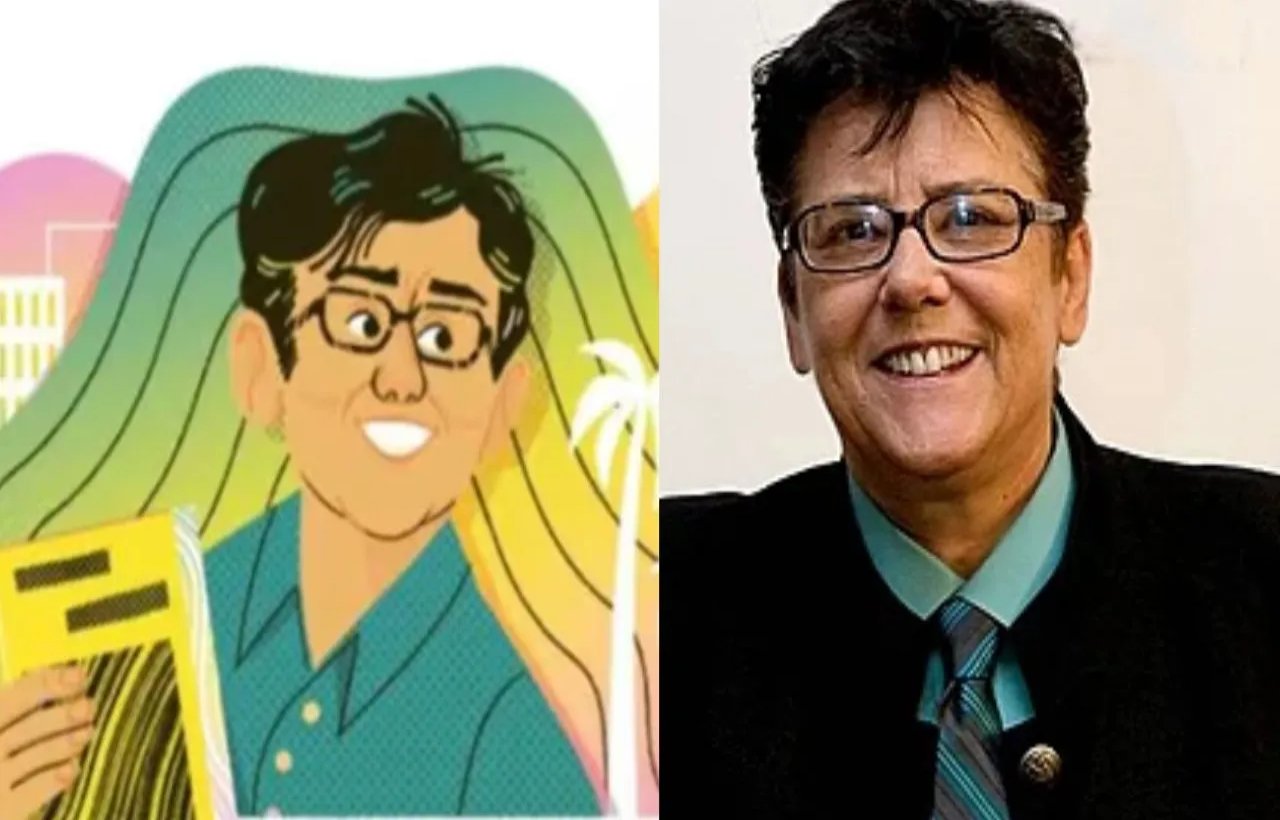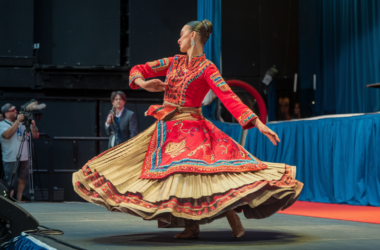Early Life and Cultural Heritage
Jeanne Córdova was born in Bremerhaven, Germany, in 1948 to a Mexican-American father and Irish-American mother. Raised in Southern California, she grew up with a deep understanding of diverse cultures. An acute awareness of the intersectionality between race, gender, and sexuality. Her Mexican heritage would later influence her advocacy, adding a unique perspective to her activism in a predominantly white LGBTQ movement. Córdova’s childhood experiences led her to question social norms, and her personal struggles with identity and acceptance fueled her lifelong passion for justice and equity.
You May Also Like: Lola Beltrán: The Voice That Defined Mexican Ranchera Music
Awakening to Activism
Córdova’s path to activism was catalyzed by her early encounters with the church. She initially pursued a religious life, enrolling in a convent and seeking to become a nun. However, her growing awareness of her sexuality forced her to reconsider her path. Leaving the convent, she confronted her identity as a lesbian. An exploration that led her to challenge societal expectations and seek out others in the LGBTQ community. Her decision to embrace her true self marked the beginning of her journey as an activist and advocate for LGBTQ rights.
Journalism as a Tool for Change
For Jeanne Córdova, journalism became a powerful medium to spread awareness and foster solidarity among marginalized communities. Recognizing the lack of media representation for LGBTQ individuals, especially lesbians, she founded The Lesbian Tide in 1971. The publication became one of the most influential lesbian newspapers of the time, discussing issues that mainstream media avoided, such as lesbian visibility, police harassment, and LGBTQ political activism.
The Lesbian Tide: A Revolutionary Voice
Through The Lesbian Tide, Córdova created a platform that both informed and inspired. The newspaper was instrumental in unifying lesbians across the United States, allowing women to share experiences and find community. The publication addressed topics ranging from lesbian rights and political strategies to cultural events and personal stories. For many readers, The Lesbian Tide served as a lifeline, connecting them to a broader movement. Córdova’s journalistic efforts not only documented but actively shaped the queer history of the 1970s.
Jeanne Córdova’s Role in Early LGBTQ Organizations
Beyond her contributions to media, Jeanne Córdova was deeply involved in pioneering LGBTQ organizations that laid the foundation for today’s queer rights movement. She was active in the Gay Community Services Center in Los Angeles. Where she worked tirelessly to provide resources for LGBTQ individuals in need. Additionally, Córdova played a significant role in the formation of the National Gay and Lesbian Task Force, one of the earliest organizations advocating for LGBTQ rights on a national level.
Fighting for Lesbian Rights
Córdova’s activism was distinctively focused on the unique challenges faced by lesbians, often overlooked in the broader LGBTQ movement. She worked to highlight lesbian-specific issues, such as the right to custody for lesbian mothers. Lesbian visibility, and the sexual politics within the feminist movement. Her advocacy not only pushed for societal change but also called for unity within the LGBTQ community, bridging gaps between various groups and strengthening the movement as a whole.
Córdova’s Impact on Feminism
Jeanne Córdova’s work was not limited to LGBTQ issues; she was also a staunch feminist who saw the fight for women’s rights as inseparable from the fight for LGBTQ rights. Córdova advocated for a feminist approach that included all women, regardless of sexual orientation, race, or class. Her belief in intersectional feminism allowed her to address issues affecting a wide range of marginalized women, from workplace discrimination to sexual violence. By promoting a more inclusive feminist movement, Córdova helped reshape feminism to embrace all women’s voices.
Bridging the Queer and Feminist Movements
One of Córdova’s most notable achievements was her ability to bridge the queer and feminist movements. At a time when tensions often existed between LGBTQ and feminist activists. Córdova advocated for a united front, recognizing the shared struggles for rights and representation. Her ability to work across movements made her a vital figure in building solidarity, creating alliances, and fostering a deeper understanding between these groups.
Key Campaigns and Events Organized by Córdova
Jeanne Córdova organized numerous campaigns and events that became landmarks in LGBTQ history. From protests and pride parades to community gatherings, she utilized her organizing skills to empower and mobilize LGBTQ individuals across the nation. One significant event was her involvement in organizing the West Coast Lesbian Conference in 1973, which drew hundreds of women and emphasized the importance of lesbian voices within both the LGBTQ and feminist movements.
The West Coast Lesbian Conference
The West Coast Lesbian Conference was a groundbreaking event that provided a safe space for lesbians to discuss issues specific to their experiences. Jeanne Córdova was instrumental in creating this conference, which focused on lesbian identity, political strategies, and social issues. The conference marked an important moment in lesbian visibility and laid the groundwork for future gatherings that would continue to support lesbian communities.
Writing as Activism: “When We Were Outlaws”
In her later years, Jeanne Córdova documented her life and activism in her memoir, When We Were Outlaws. This autobiographical work offers an intimate view into her journey as an activist and her experiences within the LGBTQ community. The memoir not only preserves her story but also serves as a testament to the struggles and victories of the LGBTQ rights movement during a pivotal era. Córdova’s candid storytelling highlights both the challenges she faced and the resilience that drove her forward.
Jeanne Córdova’s Legacy and Influence
Jeanne Córdova’s legacy remains a powerful inspiration in LGBTQ and feminist circles. Her contributions have left an indelible mark on queer history, serving as a reminder of the importance of visibility, representation, and perseverance. Today, her life’s work continues to inspire activists and community leaders who are fighting for equality and justice. Her vision for a more inclusive and accepting society still resonates, encouraging new generations to carry forward the torch of LGBTQ and feminist activism.
The Role of Intersectionality in Córdova’s Work
Córdova’s activism was deeply rooted in the concept of intersectionality. Understanding that multiple layers of identity influence an individual’s experiences and challenges. She fought not only as a lesbian but also as a Latina and a feminist, recognizing that her struggles were interconnected with those of other marginalized communities. This approach allowed her to build alliances across social movements, advocating for a society that acknowledges and respects diverse identities.
A Lasting Impact on Queer Literature
Jeanne Córdova’s contributions to literature and journalism have had a lasting impact on queer representation in media. Her work inspired other writers and journalists to address LGBTQ issues openly and unapologetically, paving the way for a more inclusive literary landscape. Córdova’s commitment to honest, bold storytelling has inspired generations of writers who continue to push for visibility and representation in literature and journalism.
Jeanne Córdova’s Influence on Today’s LGBTQ Movement
Córdova’s pioneering work laid the groundwork for many of the rights and freedoms enjoyed by the LGBTQ community today. Her activism not only brought awareness to LGBTQ issues but also helped create a safer and more inclusive world for queer individuals. The organizations she supported and the initiatives she championed remain influential, serving as foundations for current LGBTQ advocacy work.
Honoring Jeanne Córdova’s Memory
Today, Jeanne Córdova is remembered as one of the most influential voices in the LGBTQ movement. Her legacy is celebrated through scholarships, awards, and memorials that honor her contributions. LGBTQ organizations and community leaders continue to draw inspiration from her work, ensuring that her vision for a more just world lives on.
Jeanne Córdova’s Influence on Future Activists
Córdova’s life story serves as a powerful example for future activists. Her courage, dedication, and resilience offer a roadmap for those who seek to make a difference in the world. By standing up against discrimination and fighting for equality. Córdova has inspired countless individuals to pursue activism and strive for a more inclusive society.
FAQs
What was Jeanne Córdova’s role in LGBTQ journalism?
Jeanne Córdova founded The Lesbian Tide, a pioneering publication that addressed lesbian issues and LGBTQ rights, offering a platform for community solidarity.
Why is Jeanne Córdova considered an intersectional activist?
Córdova’s activism encompassed her identities as a lesbian, Latina, and feminist, advocating for a society that respects and celebrates diversity.
What legacy did Jeanne Córdova leave for future activists?
Her life serves as an example of resilience, inspiring future activists to advocate for justice and equality across intersecting communities.
How did Jeanne Córdova influence LGBTQ organizations?
She was actively involved in establishing and supporting key LGBTQ organizations that laid the groundwork for today’s advocacy efforts.
What impact did Jeanne Córdova have on queer literature?
Her memoir and journalism brought visibility to LGBTQ issues and inspired other writers to address these topics openly.
What was the significance of the West Coast Lesbian Conference?
This conference provided a space for lesbian identity, community, and political strategy, emphasizing lesbian visibility in social movements.
How is Jeanne Córdova’s memory honored today?
Her contributions are celebrated through awards, scholarships, and initiatives that continue her vision of equality and justice for LGBTQ individuals.
Conclusion
Jeanne Córdova’s life was marked by fierce dedication to LGBTQ rights, feminism, and intersectional activism. Her unwavering commitment to equality continues to inspire new generations, reminding us of the power of visibility, representation, and resilience in the fight for justice. Through her legacy, Córdova’s voice echoes in today’s social movements. Its standing as a beacon of hope and progress for a more inclusive and accepting world.








